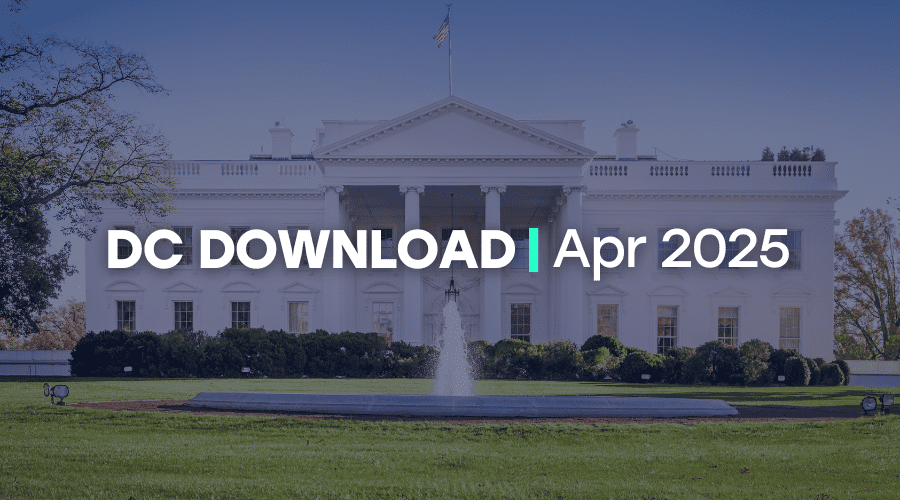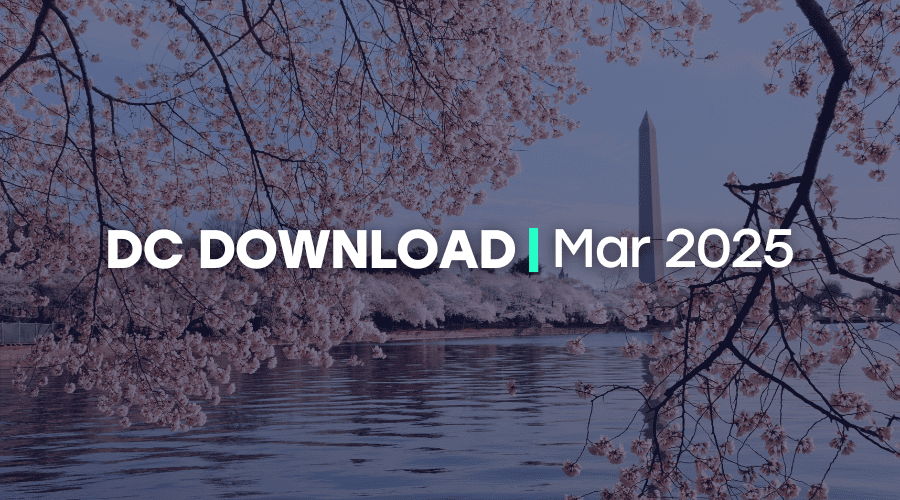This is easily the longest DC Download that we have had in my time at Independent Sector. (OK, it’s only been a year. But still, you have been very busy, nonprofit policy people!) If you have a hard time keeping any of these details straight, just imagine how the congressional staff that we work with are feeling. They are called upon to be an “expert” on just about every issue under the sun. If that sounds like an impossible task, it is impossible—without the help of dedicated advocates who can convey our sector’s impact and its vital intersections with public policy. That’s the value of you all! But to cover all our bases, here is what you need to know about that and all the other major federal policy updates that may impact your work in the coming month.
IRS Reform Passes House of Representatives
On April 9, the House of Representatives passed the Taxpayer First Act (H.R. 1957), which aims to modernize and refine processes to make the IRS more efficient. This legislation contains a provision that would institute mandatory electronic filing of Form 990s for all tax-exempt organizations, which experts across the sector have long contended will improve reporting, research, transparency, and accountability for tax-exempt organizations. The legislation would also bolster the Volunteer Income Tax Assistance (VITA) program, through which many nonprofit organizations provide tax filing help to low-income individuals. The action on this legislation now turns to the Senate, where Finance Committee Chairman Chuck Grassley (R-IA) has indicated it could move quickly. Learn more about the Taxpayer First Act.
No Agreement on Budget Caps, Spending Bills Coming Soon
Despite stated opposition from the White House, leaders on Capitol Hill have broadly acknowledged the need to raise strict budget caps as they begin writing Fiscal Year 2020 spending bills. Unfortunately, an actual bipartisan agreement to raise those caps continues to elude congressional negotiators. Meanwhile, legislation to raise the budget caps was pulled from consideration by the House of Representatives earlier this month as Democrats struggled to unite behind a single set of numbers for defense and nondefense spending. In early May, the House Appropriations Committee is expected to begin writing and considering legislation in anticipation of a future deal.
New Congressional Report Cites Negative Impact from UBIT Expansions
Shortly after we published our March DC Download, Joint Economic Committee Vice-Chair Carolyn Maloney (D-NY) issued a new report, The Economic Impact on Charities of the 2017 Tax Act. This report—which accompanies legislation introduced the same day—makes the case that nonprofit organizations play a vital role in our economy but are being buffeted by several harmful policy forces. It notes widespread concern about charitable giving trends before sounding the alarm about the two tax increases levied on nonprofit organizations through UBIT in the 2017 legislation. Encouragingly, the report extensively cites Independent Sector’s UBIT impact research to which so many of our partners, allies, and members contributed.
Let’s keep the momentum going! Take two minutes and use our Action Center to ask Congress to support #MissionNotTaxes.
Overtime Regulations Comments Due Soon
The U.S. Department of Labor has issued a proposed rule to update the salary level at which employees may be exempt from overtime requirements under the Fair Labor Standards Act. This proposal would boost the standard salary level from $455 to $679 per week (equivalent to $35,308 per year). Above this salary level, eligibility for overtime varies based on job duties.
See more information about the proposed rule and submit comments in the rulemaking docket RIN 1235-AA20 by May 21, 2019.
Charitable Giving Legislation Adds Cosponsors
Reps. Chris Smith (R-NJ) and Henry Cuellar (D-TX) continue to add cosponsors to H.R. 651, which would create a universal charitable deduction that is available to all taxpayers whether they itemize their taxes or not. They are now joined on this bill by eight Democrats and six Republicans. Ask your Representative to cosponsor today!
Net Neutrality Legislation Passes House of Representatives
On April 10, the House of Representatives passed legislation—with the support of some nonprofit organizations—to restore Obama-era net neutrality rules requiring internet service providers (ISPs) to treat all internet traffic equally. Supporters of net neutrality rules believe government oversight is needed to guard against a new digital divide, in which nonprofits, consumers, content creators, and some geographic areas experience reduced or limited internet service due to an inability to pay. Opponents assert that FCC oversight of this issue is unnecessary and may stifle innovation. Senate Majority Leader Mitch McConnell (R-KY) has said that the House’s legislation will not advance in the Senate. In the meantime, states like California and Washington, have passed their own net neutrality laws, inspiring other states to consider similar legislation.
Public Service Loan Forgiveness Legislation Introduced
On April 11, Senators Kirsten Gillibrand (D-NY) and Tim Kaine (D-VA)—joined by 14 other Democratic senators and Sen. Bernie Sanders (I-VT)—introduced legislation to update and expand the Public Service Loan Forgiveness program. The What You Can Do for Your Country Act (S. 1203) would allow all types of federal student loans to qualify for forgiveness, as well as borrowers in any type of repayment plan. The bill would also allow partial loan forgiveness after five years of service and direct the Department of Education to provide borrowers with more up-front information and a simplified application process.



